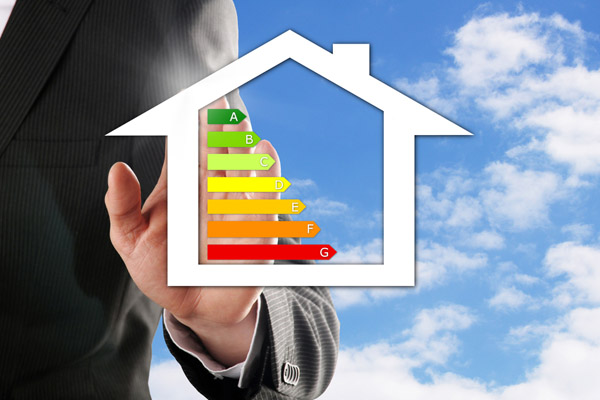What Does An Air Conditioner’s SEER Rating Actually Mean?

One of the most crucial factors to consider when looking for an air conditioning system is the Seasonal Energy Efficiency Ratio or, for short, SEER rating. It is an indicator of your cooling system’s efficiency when it comes to energy consumption and home comfort. The U.S. Energy Information Administration (EIA) states that an air conditioning unit for residential use should have at least a SEER rating of 14 or higher. Bear in mind that different states also have varying SEER rating requirements.
Read on to learn all you need to know about this topic.
What Is An Air Conditioner’s SEER Rating?
Table of Contents
The air conditioner’s SEER rating is its cooling output over its annual total energy consumed. Ratings typically go from 13 to 21, with the cooling system’s efficiency increasing as the SEER rating gets higher.
Importance Of SEER

Knowing the SEER rating of an air conditioner before installing it is only prudent because the right system will provide you with many benefits, including:
- Lower cooling bills – An air conditioner with a high-efficiency level achieves the set temperature without consuming a lot of energy. Therefore, a system with the right SEER rating will reduce your energy bills.
- Better comfort – Licensed HVAC contractors state that a well-performing system can cool a four-bedroom home in around three hours by 10 degrees Fahrenheit. This is also dependent on the size and age of your system, but having the right SEER rating should be able to give your home better comfort.
- Eco-friendly cooling – A cooling unit that uses less energy means it has reduced greenhouse gases emissions. Therefore, air conditioners with high SEER ratings provide eco-friendlier cooling.
What SEER Rating Is Considered Good?
A system that has a 14-SEER rating and above is good. What is needed is to determine the best rating to meet your home’s needs. Therefore, you need to factor in your home’s overall size, the occupants’ cooling needs, and the energy consumption rate you prefer. Regardless, having a high SEER rating means that you have a highly efficient system. Whether it will work efficiently in your home is dependent on the home’s size. Therefore, you need to consult an expert HVAC contractor to help you determine which SEER rating is appropriate for your home. After all, a 14-SEER air conditioner might be enough to cool a two-bedroom home, but you need a higher SEER rating if you want to cool a five-bedroom house effectively.
How To Calculate The SEER Rating

The SEER rating of the air conditioner is calculated by dividing the total annual cooling output from the total electric energy input. To find the cooling output, you need to multiply the number of days the cooling unit worked in the year by the British Thermal Unit per hour. After which, multiply it by the number of days the cooling system worked annually. For example:
14 cooling hours per day x 5,000 BTU/h x 180 days per year = 12,600,000 BTUs per year.
If you have a total yearly energy consumption of 700,000Wh, your SEER rating will be:
12,600,000/700,000 = 18 SEER
How To Find A SEER Rating On Your Cooling Unit
According to the U.S. Department of Energy, HVAC manufacturers must indicate the SEER rating on their cooling systems. Qualified units should also have an Energy Star label. If you need to know the SEER rating of your air conditioner, find a yellow and black sticker that’s typically at the side of the condenser unit. It should have a clear indication of the SEER rating your system has.
You can also check the air handler. If these options are unavailable, locate the name of the system’s manufacturer, the serial number, and the model number. You can use this information to look up the SEER rating online. You can also call the manufacturer to ask. If these are too much of a hassle to do, you can contact an HVAC technician to help you. Otherwise, locating the SEER rating shouldn’t be difficult unless the manufacturer didn’t properly label the system.
What Are Mismatched Air Conditioners?
The condenser unit and the indoor air handler need to match so that your air conditioner works optimally. Manufacturers make indoor units that are compatible with outdoor condensers. Therefore, HVAC contractors should install matched pairs of air conditioners. The bad news is that this isn’t always the case, especially if you hire an inexperienced contractor.
The air conditioner size that doesn’t match your home means it is also a mismatch. It could be either too large or too small for your home. An oversized air conditioner will short cycle, meaning it can cool your home, but it will not operate long enough to properly eliminate the humidity or filter the indoor air. As a result, you will have an uncomfortable and humid home. Your system will also consume more energy because it will turn on and off repeatedly.
On the other hand, a system that is too small will have long cycles. It will overwork and cause the components to wear out faster. It will then need frequent HVAC repairs, and can result in early replacement. You will also notice a spike in your energy costs.
An HVAC system’s efficiency will be reduced when you have a mismatched system, even if it has a high SEER rating. Therefore, make sure that the HVAC installer your hire understands this. Contact a licensed HVAC professional to avoid having a mismatched cooling system installed in your home.
Other Factors To Consider When Choosing A Cooling System
The SEER rating is just one factor to consider when choosing the right air conditioner for your home. You should also consider the size and price. After all, having a system that is either too large or too small will lead to high energy consumption. It is also recommended that you stick with the budget you have. The noise level a unit produces should also be kept in mind. Less efficient ACs tend to be noisier because they strain to work as they should. Lastly, look into the system’s warranty because it guarantees repairs or replacement when the system needs it.
Conclusion
An air conditioner with a good SEER rating means it is highly efficient, and you can enjoy low energy bills. An ENERGY STAR certification can also help cut your energy costs further while protecting the environment. Contact your local, trusted HVAC contractor to help you choose the best HVAC system for your home and maintain it.
Call Hart Home Comfort For All Of Your HVAC Requirements

Do not hesitate to call Hart Home Comfort for all your excellent heating and cooling service needs in Nassau County, Suffolk County, and Queens, New York. We have highly skilled and professionally trained technicians who can conduct superior maintenance, installations, repairs, and replacements. Each of our friendly techs has years of experience and extensive knowledge to service any HVAC make and model accurately and promptly.
Rest assured, we have the most competitive HVAC service costs in the area. Our tune-ups can also help enhance your home’s energy efficiency and comfort while reducing your heating and cooling bills. We can also recommend the best HVAC repair or replacement solutions that meet your needs and budget. All our work comes with a guarantee because your satisfaction is our priority. Schedule a service appointment by giving Hart Home Comfort a call today. We offer free, in-home estimates.
For any questions about what Hart Home Comfort can do for you, give us a call today. Click here to contact us now or call us at (631) 667-3200 to find out more!